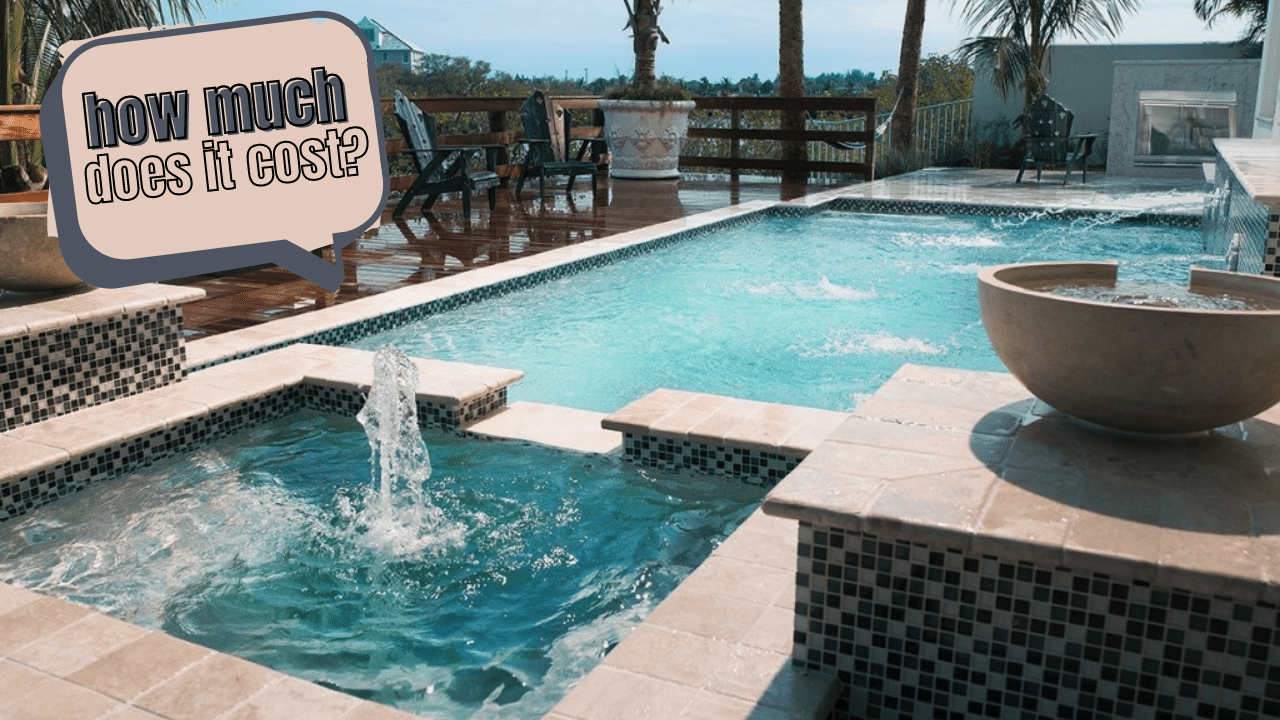Are you thinking of switching from chlorine to a salt system to have a well-coveted saltwater pool? There are plenty of reasons why salt pools are growing in popularity - they have easy maintenance, the saltwater feels gentle on the eyes and the skin, and it doesn’t give off a strong chlorine odor.
So if you’re wondering, “How much will a saltwater pool conversion cost?” You’re looking at spending about $1,300 for an above-ground pool and $1,200 to $2,500 for an inground pool.
If you’re still on the fence about switching from a traditional chlorine pool to a saltwater pool, let’s discuss the rough estimate of your expected costs.
Saltwater Pool Conversion Cost

Most homeowners can convert their in-ground pools to a saltwater system for $1,700 to $2,500. This doesn’t include the cost of the salt, though.
Important Note: A salt chlorine generator is not a one-time purchase. You will also need to regularly replace the cell and control board, which adds up to $1,200 to $2,000 every 3 to 7 years.
Saltwater Pool System Maintenance Costs
You’ll pay less than $100 a year for the necessary salt and chemicals for your saltwater swimming pool maintenance. In contrast, you are likely to spend anywhere between $350 to $900 (or more) to maintain a standard chlorine pool. (Related: How Much Would It Cost To Maintain a Pool?)
Every 3 to 5 years, you’ll need to consider an additional $250 to $800 for the salt cell replacement. The power required to run your saltwater system adds $40 to $50 to your annual utility bill.
Saltwater Pools: The Basics
Are you still wondering why saltwater pools are increasing in popularity? This is because this pool system requires fewer harsh chemicals and less maintenance than traditional chlorine pools.
So, if you make the switch to a saltwater pool, you won't need to buy (or add) chlorine regularly. This also protects you from possible skin irritation issues and the surprising occurrence of green hair. (Related: Understanding Your Pool Systems: Sanitation, Filter, and More!)
Saltwater Pool Conversion: Pros and Cons
Let’s discuss the pros and cons to consider if you convert your chlorine pool to a saltwater pool.
The Good
The Bad
Overall Verdict: Should You Convert Your Chlorine Pool to Saltwater?
The many benefits of making the switch to a saltwater pool are as clear as its pool water quality, but one important thing to note is how it's not for everyone. This means it may lead to more problems in the long run, especially if your pool is incompatible.
So, what makes it a bad idea to switch to a saltwater pool system? For starters, if your in-ground pool is designed with several metal parts or accessories, you will be better off avoiding frequent exposure to salt. That is unless you have a plaster surface. Also, most pools are designed to accommodate a chlorine system. In some cases, your existing pool equipment may not be compatible with a saltwater pool system. This will require you to install new equipment, increasing the total installation costs.
Lastly, most pool companies in the country cater and service standard chlorine pools exclusively. Since saltwater pools have a different process that needs specialized knowledge for maintenance, you will need to look for another conversion company in your area that also offers saltwater pool maintenance services.
Frequently Asked Questions (FAQs)
What are the benefits of a saltwater pool?
Having a saltwater pool provides several benefits:
What are saltwater pool health risks?
Saltwater pools are associated with relatively few health risks. The salt has no odor and has extremely little danger of allergic reactions since it produces fewer chloramines, which reduces eye irritation and chlorine odor.
Can you be allergic to saltwater pools?
Many people are allergic to chemical chlorine, although only a tiny percentage of the population is allergic to salt or the chlorine it produces. According to most people with chlorine allergies or sensitivity, saltwater eliminates their allergies.
How do saltwater pools work?
To function properly, a saltwater pool requires a saltwater chlorination system. An electrolyzer in the salt system produces chlorine from salt and water when the saltwater passes through an electrical current. The process produces fewer chloramines, which softens the water, relieves joint pain, and has no chlorine odor.
How much salt is in a saltwater pool?
You might be astonished to learn that the salt concentration is lower than your tears. It's also so low in concentration that you won't be able to detect it by taste or scent, but you will notice how gentle and refreshing it feels on your skin. A saltwater pool has a salt concentration of 2500 to 4500 ppm, whereas human tears have a salt concentration of 9,000 ppm. When you compare that to the 35,000 ppm found in the Pacific Ocean, you can see how low it is.
Is it just like swimming in the ocean?
Apart from the fact that they are both refreshing, they are very different. The salt content in the ocean is roughly 35,000 parts per million, while it is kept at around 3,000 parts per million in a saltwater swimming pool. The salt content is so low that it's still categorized as freshwater, and in a perfectly balanced pool, you can't taste or smell the salt.
Will my new saltwater pool require more maintenance?
Because saltwater is more stable and balanced, you will notice a significant reduction in the time spent balancing the water. Most salt systems have a built-in monitor that displays salt and stabilizer levels, minimizing the need for frequent testing. This means you'll save time and money on chemicals while spending more time enjoying your pool.
